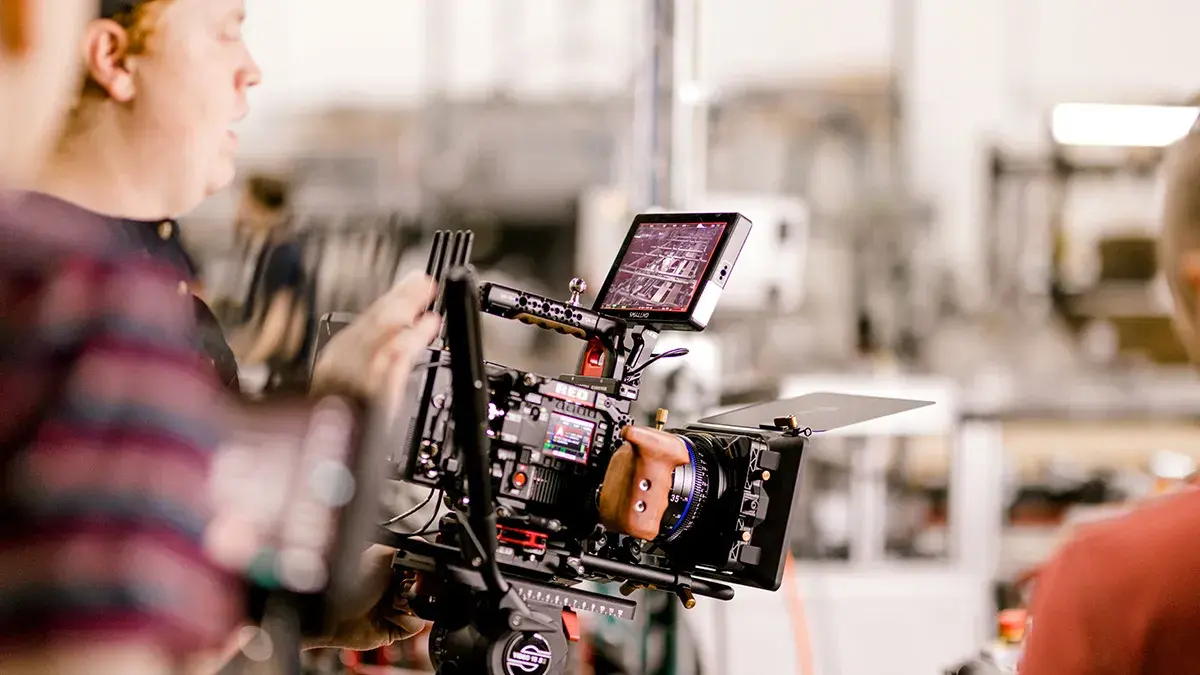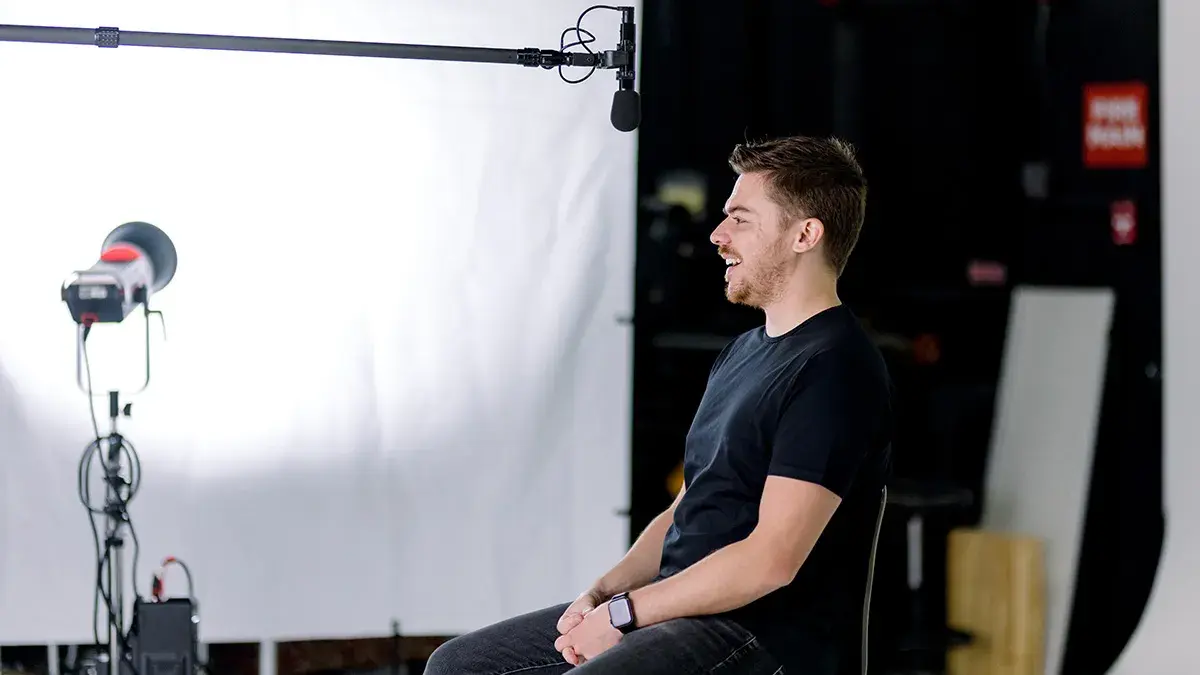The Ultimate B2B Video Marketing Strategy
Why B2B Brands Can't Ignore Video in 2025 B2B video marketing has become a necessity in today's digital environment, especially within saturated and...
▶ Video Strategy & Discovery
A video marketing strategy will keep your production cohesive and on schedule.
▶ Creative Treatments, Scripts & Storyboards
Bring your vision to life with professional scriptwriting and storyboarding services.
▶ Production Preparation
Prepare for your corporate video with professional video production services.
▶ Full Service Filming Days
Discover how Charter & Co can help you bring your vision to life through expert on-set filming services.
▶ Video Editing, Color Grading & Sound Design
Elevate your video marketing with Charter & Co’s expert video editing and post-production services.
▶ Motion Graphics
Captivate audiences with videos, ads, and social media that include high-quality animations.
▶ Licensed Music & Voiceovers
Elevate your videos with high-quality music licensing and voiceover services.
▶ Distribution Strategy & Advertising Support
Get your content noticed with a comprehensive video distribution strategy.
▶ Everything Video Marketing
Video marketing resources: What it is, why it matters, and how to do it.
▶ Everything Video Production
Your ultimate guide to video production resources: Tips and tricks for creating masterful videos.
▶ Blog
Helpful Blog resources for all of your video production and marketing needs
4 min read
Charter & Co December 10, 2023

B2B video marketing has been around since the early 1940s, but it hasn’t always been so glamorous. Because B2B customers aren’t always viewed the same as B2C customers, traditional approaches to B2B video content left videos feeling dry and lacking engagement. Video content for B2C customers has always been focused on creating emotionally compelling videos. However, video content for B2B customers was traditionally focused on functionality and data/statistics rather than prioritizing the viewer’s experience.
This attitude—and the way businesses are approaching B2B video marketing—is starting to shift. B2B video marketing trends are increasingly mimicking B2C video marketing trends, yielding higher engagement and overall greater ROI. With this drastic shift in B2B video marketing philosophy and strategy, it’s important to stay on top of the trends and create video content that will be well-received in the current marketing climate. Fortunately, you have a wide array of options for video content.
To get a better idea of the different video styles you can create when you start thinking about B2B videos, check out these nine scroll-stopping types of video marketing. With such a wide variety of video types and styles to pick from, you’re bound to find something that will work for your organization’s specific needs.
The rate at which we consume video skyrocketed during the COVID-19 pandemic and has only continued to grow. Despite this rise in popularity, many B2B businesses of all sizes continue to overlook the power of video marketing, but statistics show this can create a massive missed opportunity. The average video consumption per person per day is 84 minutes, with 96% of people turning to videos to learn more about a product or service.
With so many people looking for video, you may be missing out on potential customers if you haven’t incorporated a corporate video into your marketing strategy yet. In fact, 71% of B2B marketers are already utilizing video in some format, meaning your target audience is bound to find the video content they are looking for—it just may not be from you.
By setting up a B2B video marketing strategy, you’re positioning your company to be viewed as a more attractive, personable option. Creating and sharing B2B videos will increase your SEO ranking, your organic growth, the positive relationships you have with your customers, and more. This will ultimately result in happier customers, higher sales, and increased loyalty.
Many companies cite a lack of time and resources as the primary reason they aren’t utilizing B2B video content marketing. However, you don’t need to have professional equipment or a full video team to see results from video marketing. The most important element of creating successful B2B videos is putting in the time and effort to make sure your content is quality. By following these tips, you can make the most out of the resources you have available now.
Before you start creating any content, decide on a publishing strategy. It doesn’t make sense to create content for every platform when your audience likely isn’t utilizing all of them. Instead, pick two or three platforms that will be most effective for your business and focus on creating quality content for those platforms alone.
When picking platforms, consider where your target demographic spends their time. The best B2B marketing channels for your company will vary from another company’s. For example, if you create quality fashion items for local boutiques to sell, you may find your audience on platforms like Instagram and Pinterest. If you are selling farming equipment to commercial farmers, however, your target audience may not be spending time on those same platforms. To hit your B2B marketing objectives, pick the right platforms to ensure your content gets in front of the right groups of people.
Learn more about picking the right channels for video marketing with our no-nonsense guide to creating a video marketing strategy.
While your B2B video content may have an underlying goal (e.g., boost sales, generate traffic/leads), the number one goal should always be to create content that fosters trust, loyalty, and repeat customers. By doing this, you’ll build a relationship that encourages customers to keep coming back.
Create personalized video content that resonates with your target audience. If it fits your brand, provide value with educational content that makes it easy for customers to keep returning to you. Once you’ve found a style that works, stay consistent and authentic—consistency sets expectations and keeps audiences around.
Not only are testimonial videos one of the most common forms of video marketing content—they’re among the most impactful. Reviews and testimonials are powerful tools: 72% of customers say reviews and testimonials increase their trust in a business. That social proof is key when you’re creating B2B videos to build trust.
When creating testimonial videos, follow best practices to capture honest, authentic feedback. For more, see 9 Scroll-Stopping Types of Video Marketing Every Brand Needs.
Explainer/tutorial videos are versatile and effective for any business. Regardless of your product or target audience, there’s a way to make this style work as part of your B2B video content strategy.
Tutorials can meaningfully impact your campaign. As with any video on your website, tutorials and explainers can boost SERP rankings and decrease bounce rates. In addition, you can use them to:
The ROI on explainer/tutorial videos is exceptional, making them a smart investment.
When developing B2B video marketing content, feel free to let loose a little. While B2B content has traditionally been more straightforward and dry, that’s changing. There are clear benefits to creating fun, lighthearted content for B2B customers:
Remember: these videos should be entertaining as well as educational. A touch of humor helps maintain engagement throughout.
Regardless of your industry, business size, and target audience, including videos in your B2B marketing strategy is one of the best ways to get your content in front of the right people.
If you’re ready to give video marketing a shot but need support, consider reaching out to Charter & Co. We’ve got you covered from concept to implementation—every step along the way—so you’re set up with the best video marketing strategy for your unique needs.

Why B2B Brands Can't Ignore Video in 2025 B2B video marketing has become a necessity in today's digital environment, especially within saturated and...

Your Ultimate Guide to the Benefits of Video Marketing According to Adobe, video marketing is "using video to promote your brand, product, or...

Business-to-business (B2B) marketing must appeal to company decision-makers rather than consumers. This often requires different practices and types...